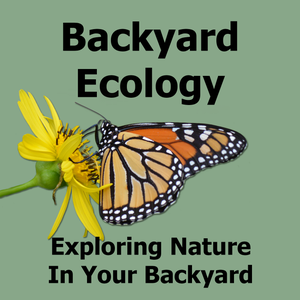
Backyard Ecology
Shannon Trimboli
- 3 minutes 26 secondsWe’re back!
Summary I am so excited to be relaunching the Backyard Ecology™ podcast! New episodes will be released every other week, and we have some exciting guests already lined up.
Going forward, in addition to the traditional audio version of the podcast episodes, there will also be a video version available for the episodes with guests. The video version will be available on the Backyard Ecology™ YouTube channel.
Links and Resources
- YouTube channel: https://www.youtube.com/backyardecology
- Website: https://backyardecology.net
- Newsletter: https://backyardecology.net/subscribe
- Support: https://backyardecology.net/support
Thank You
Thank you to our amazing Patrons who go above and beyond every month to provide financial support which helps us create so much free content for everyone to enjoy and learn from.
9 January 2025, 11:00 am - 13 minutes 7 secondsTop 10 Backyard Ecology Podcast Episodes: October 1, 2022 – October 1, 2023
I can’t believe that 2023 is almost over! This year has flown by! For the past several weeks, I’ve been doing top 10 roundups of the different types of Backyard Ecology content. We’ve talked about the videos, the blog articles, and the nature trivia style shorts. So, let’s wrap it up with a rundown of the top 10 podcast episodes of the year.
🦋 9b) Everything You Want to Know About Nesting Birds with NestWatch https://www.backyardecology.net/everything-you-want-to-know-about-nesting-birds-with-nestwatch/
🦋 9a) Birding Tools and Technology to Help You Be a Better Birder https://www.backyardecology.net/birding-tools-and-technology-to-help-you-be-a-better-birder/
🦋 8) Exploring Urban Ecology: Understanding and Appreciating Nature Where We Live https://www.backyardecology.net/exploring-urban-ecology/
🦋 7) Why Are Invasive Species Something You Should Care About? https://www.backyardecology.net/why-are-invasive-species-something-you-should-care-about/
🦋 6) Moths: Unsung Heroes of Pollination and Beyond https://www.backyardecology.net/moths-unsung-heroes-of-pollination-and-beyond/
🦋 5) Gardening with Sedges - Mt. Cuba Center Carex Trial https://www.backyardecology.net/gardening-with-sedges-mt-cuba-center-carex-trial/
🦋 4) How Can Your State’s Native Plant Society Help You? https://www.backyardecology.net/how-can-your-states-native-plant-society-help-you/
🦋 3) Learning to See and Identify Plants with Alan Weakley https://www.backyardecology.net/learning-to-see-and-identify-plants-with-alan-weakley/
🦋 2) Ecology Based Landscaping with Larry Weaner https://www.backyardecology.net/ecology-based-landscaping-with-larry-weaner/
🦋 1) Growing Native Plants, Insect-Plant Interactions, Playing in the Pond, and Much More with Dr. Randi Eckel https://www.backyardecology.net/growing-native-plants-insect-plant-interactions-playing-in-the-pond-and-much-more-with-dr-randi-eckel/
🦋 Bonus: Gardening with Native Plants https://www.backyardecology.net/gardening-with-native-plants/
Other Episode Relevant Links: 🦋 Nature at Your Door, Connecting with the Wild and Green in the Urban and Suburban Landscape https://amzn.to/3KwEYX0
🦋 Garden Revolution https://amzn.to/3Ckbp6F
* Amazon links are affiliate links. We get a small commission from Amazon if you use them, but this comes at no cost to you.
🌻 🌻 🌻
Thank you to our supporters on Patreon who go above and beyond each month to financially contribute towards making the Backyard Ecology blog, podcast, and YouTube channel possible. Thank you also to everyone who has made one-time donations to support the Backyard Ecology blog, podcast, and YouTube channel.
🌻 🌻 🌻
Become a Backyard Ecologist:
🦋 The Backyard Ecologist’s Newsletter: https://www.backyardecology.net/subscribe/ 🦋 Backyard Ecology Community: https://www.backyardecology.net/community/ 🦋 Group coaching: https://www.backyardecology.net/group-coaching/
Backyard Ecology content:
🦋 Website: https://backyardecology.net 🦋 YouTube Channel: https://www.youtube.com/backyardecology 🦋 Blog: https://www.backyardecology.net/blog/
Support Backyard Ecology:
🦋 Patreon page: https://www.patreon.com/backyardecology 🦋 Make a one-time donation: https://www.paypal.com/biz/fund?id=K7F3HJLJT9F8N
28 December 2023, 10:33 am - 4 minutes 42 secondsTop 10 Backyard Ecology “Shorts”
Did you know that in addition to the regular Backyard Ecology videos that Anthony creates, he also produces a series of nature-trivia style short videos? Most of these videos are literally only a few seconds long so are perfect “bite-sized” samples if you’re just getting started or are looking for something to watch for a few seconds on your phone.
So, let’s quickly run through the top 10 Backyard Ecology shorts based on number of views as of Thanksgiving 2023. Since the videos are so short, I’m just going to list the titles and let your curiosity decide whether to follow the link and explore further.
🦋 10) Caterpillar's Poop Stick Defense! https://youtube.com/shorts/R_mMaD2TadU 🦋 9) Ragweed SUPER FOOD for Birds! https://youtube.com/shorts/CfOM56BYZ_8 🦋 8) Hummingbirds Eat Nectar and WHAT! https://youtube.com/shorts/-IOGXUiOozY 🦋 7) Butterfly Garden Must Have! https://youtube.com/shorts/UppahIW3EnQ 🦋 6) These Cute Larvae Aren't Caterpillars! https://youtube.com/shorts/rorND6RmcGg 🦋 5) Bumblebees VS Carpenter Bees Easy ID! https://youtube.com/shorts/slBX3utAcdI 🦋 4) What Is This Weird Plant Growth! https://youtube.com/shorts/lhrmJlsKNfk 🦋 3) Have You Seen Invasive Tree of Heaven? https://youtube.com/shorts/Vqmq_8Bc3rc 🦋 2) This Caterpillar Looks Like What! https://youtube.com/shorts/Wkqy-qO8z98 🦋 1) Wolf Spider Momma Has How MANY Babies! https://youtube.com/shorts/MA7IjE8Jyyc
Bonus 🦋 See Me Fly Like Monarch and Viceroy Butterflies! https://www.youtube.com/shorts/Dzpde6I3ju8
Other Episode-Related Links 🦋 Top 10 Backyard Ecology Videos https://www.backyardecology.net/top-10-videos/ 🦋 3 Awesome Native Trees to Replace Bradford Pear! https://www.youtube.com/watch?v=ZYPak0l1exo
🌻 🌻 🌻
Thank you to our supporters on Patreon who go above and beyond each month to financially contribute towards making the Backyard Ecology blog, podcast, and YouTube channel possible. Thank you also to everyone who has made one-time donations to support the Backyard Ecology blog, podcast, and YouTube channel.
🌻 🌻 🌻
Become a Backyard Ecologist:
🦋 The Backyard Ecologist’s Newsletter: https://www.backyardecology.net/subscribe/ 🦋 Backyard Ecology Community: https://www.backyardecology.net/community/ 🦋 Group coaching: https://www.backyardecology.net/group-coaching/
Backyard Ecology content:
🦋 Website: https://backyardecology.net 🦋 YouTube Channel: https://www.youtube.com/backyardecology 🦋 Blog: https://www.backyardecology.net/blog/
Support Backyard Ecology:
🦋 Patreon page: https://www.patreon.com/backyardecology 🦋 Make a one-time donation: https://www.paypal.com/biz/fund?id=K7F3HJLJT9F8N
21 December 2023, 10:30 am - 10 minutes 44 secondsTop 10 Backyard Ecology Blog Articles: October 2022 - October 2023
I always like to do roundups of the top 10 blog articles and top 10 podcast episodes at the end of every year because I know how easy it is to miss stuff. Sometimes we have the best intentions to go back and read or listening to something, but other things come up and then we forget. So, it can be helpful to have a reminder at the end of the year for some of those articles that we might have missed.
Top 10 Backyard Ecology Blog Articles 🦋 10) Sometimes Life Happens: https://www.backyardecology.net/sometimes-life-happens/ 🦋 9) Cloudless Sulphur Butterfly: A Common Fall Migrant: https://www.backyardecology.net/cloudless-sulphur-butterfly-a-common-fall-migrant/ 🦋 8) 5 Tips for Attracting Butterflies to Your Yard: https://www.backyardecology.net/5-tips-for-attracting-butterflies/ 🦋 7) Downy Woodpecker: Our smallest woodpecker and a common backyard visitor: https://www.backyardecology.net/downy-woodpecker/ 🦋 6) Allegheny Chinquapin: An underutilized but excellent nut producing shrub: https://www.backyardecology.net/allegheny-chinquapin-an-underutilized-but-excellent-nut-producing-shrub/ 🦋 5) Why Are Some Native Plants Unavailable Early in the Season?: https://www.backyardecology.net/why-are-some-native-plants-unavailable-early-in-the-season/ 🦋 4) Native Ground Nesting Bees: Important Early Season Pollinators: https://www.backyardecology.net/mining-bees/ 🦋 3) Spicebush – A Native Shrub with Plenty to Like: https://www.backyardecology.net/spicebush/ 🦋 2) Wildflower vs Native Plant: What’s the Difference?: https://www.backyardecology.net/wildflower-vs-native-plant-whats-the-difference/ 🦋 1) 5 Things to Consider Before Buying or Putting Up a Bat Box: https://www.backyardecology.net/5-things-to-consider-before-buying-or-putting-up-a-bat-box/
Bonus: Most downloaded Backyard Ecology blog article of all time 🦋 Bluets: Delicate Blue Flowers of Spring: https://www.backyardecology.net/common-bluets-delicate-blue-flowers-of-spring/
🌻 🌻 🌻
Thank you to our supporters on Patreon who go above and beyond each month to financially contribute towards making the Backyard Ecology blog, podcast, and YouTube channel possible. Thank you also to everyone who has made one-time donations to support the Backyard Ecology blog, podcast, and YouTube channel.
🌻 🌻 🌻
Become a Backyard Ecologist:
🦋 The Backyard Ecologist’s Newsletter: https://www.backyardecology.net/subscribe/ 🦋 Backyard Ecology Community: https://www.backyardecology.net/community/ 🦋 Group coaching: https://www.backyardecology.net/group-coaching/
Backyard Ecology content:
🦋 Website: https://backyardecology.net 🦋 YouTube Channel: https://www.youtube.com/backyardecology 🦋 Blog: https://www.backyardecology.net/blog/
Support Backyard Ecology:
🦋 Patreon page: https://www.patreon.com/backyardecology 🦋 Make a one-time donation: https://www.paypal.com/biz/fund?id=K7F3HJLJT9F8N
14 December 2023, 10:30 am - 8 minutes 38 secondsTop 10 Backyard Ecology Videos
Did you know that we have a Backyard Ecology YouTube channel? If you’re like many of the blog readers and podcast listeners who responded to our 2023 end-of-year survey, then answer is “probably not.”
If you are one of our frequent viewers, thank you for coming on this journey with us. We enjoy reading all your comments on the videos.
If you haven’t discovered the Backyard Ecology YouTube channel, then I encourage you to check it out. To get you started, here are the top 10 Backyard Ecology videos based on the number of views as of Thanksgiving 2023.
The full transcript of this episode can be found at: https://www.backyardecology.net/top-10-videos/
🌻 🌻 🌻
Thank you to our supporters on Patreon who go above and beyond each month to financially contribute towards making the Backyard Ecology blog, podcast, and YouTube channel possible. Thank you also to everyone who has made one-time donations to support the Backyard Ecology blog, podcast, and YouTube channel.
🌻 🌻 🌻
Episode related links:
🦋 YouTube channel: https://youtube.com/backyardecology 🦋 10) 3 Native Crabapples You Need for Pollinators and Wildlife! https://youtu.be/LxlP4m3QsFg 🦋 9) Poison Hemlock Alert! How to Safely Control Flowering Hemlock https://youtu.be/oTenHO5QgW8 🦋 8) Why You DON'T Want Multiflora Rose on Your Property! https://youtu.be/0KrIk1KckPU 🦋 7) Is a Black Gum Tree the Best Choice for Your Yard? https://youtu.be/WLssxkqaLjM 🦋 6) 4 Serviceberries That Attract Pollinators and Support Wildlife! https://youtu.be/t2l398XM2kQ 🦋 5) The 2 Best Milkweeds for Your Butterfly Garden! https://youtu.be/JH6UIIDWY4s 🦋 4) Is a Catalpa Tree the Best Choice for Your Yard? https://youtu.be/BnPn9nfi9S0 🦋 3) Why You Need Native Hazelnuts on Your Property! https://youtu.be/DdIoNp5OuXo 🦋 2) How to Control Poison Hemlock on Any Property! https://youtu.be/FuK0MO6ST8A 🦋 1) Everything You Need to Know About American Persimmon! https://youtu.be/sSNg-b-v7Ek
Become a Backyard Ecologist:
🦋 The Backyard Ecologist’s Newsletter: https://www.backyardecology.net/subscribe/ 🦋 Backyard Ecology Community: https://www.backyardecology.net/community/ 🦋 Group coaching: https://www.backyardecology.net/group-coaching/
Backyard Ecology content:
🦋 Website: https://backyardecology.net 🦋 YouTube Channel: https://www.youtube.com/backyardecology 🦋 Blog: https://www.backyardecology.net/blog/
Support Backyard Ecology:
🦋 Patreon page: https://www.patreon.com/backyardecology 🦋 Make a one-time donation: https://www.paypal.com/biz/fund?id=K7F3HJLJT9F8N
7 December 2023, 10:30 am - 54 minutes 5 secondsTips and Tricks for Growing Prairie Plants in Your Native Plant Garden
Did you know that for many of our most commonly grown native wildflowers and grasses, 2/3 or more of the plant is underground in the form of roots? Or that you can reduce weeding requirements in your native plant garden by understanding the root systems of different plants that you are growing? Or that there is now a resource that can help you avoid mistaking a native plant in your garden as a weed and accidentally pulling it?
Today, we are talking to Hilary Cox and Neil Diboll. They are the authors of the newly published book, The Gardener's Guide to Prairie Plants. Neil is also the president and consulting ecologist of Prairie Nursery, located in Wisconsin.
The full transcript of this episode can be found at: https://www.backyardecology.net/growing-prairie-plants
🌻 🌻 🌻
Thank you to our supporters on Patreon who go above and beyond each month to financially contribute towards making the Backyard Ecology blog, podcast, and YouTube channel possible. Thank you also to everyone who has made one-time donations to support the Backyard Ecology blog, podcast, and YouTube channel.
🌻 🌻 🌻
Episode related links:
🦋 Hilary’s email: [email protected] 🦋 Neil’s email: [email protected] 🦋 The Gardener's Guide to Prairie Plants: https://amzn.to/3QTmMco (affiliate link) 🦋 Prairie Nursery: https://www.prairienursery.com/
Become a Backyard Ecologist:
🦋 The Backyard Ecologist’s Newsletter: https://www.backyardecology.net/subscribe/ 🦋 Backyard Ecology Community: https://www.backyardecology.net/community/ 🦋 Group coaching: https://www.backyardecology.net/group-coaching/
Backyard Ecology content:
🦋 Website: https://backyardecology.net 🦋 YouTube Channel: https://www.youtube.com/backyardecology 🦋 Blog: https://www.backyardecology.net/blog/
Support Backyard Ecology:
🦋 Patreon page: https://www.patreon.com/backyardecology 🦋 Make a one-time donation: https://www.paypal.com/biz/fund?id=K7F3HJLJT9F8N
30 November 2023, 11:02 am - 59 minutes 25 secondsResharing Your Favorites: Winter Hummingbirds
Did you know that some hummingbirds will overwinter in the eastern U.S.? These aren’t our normal ruby throated hummingbirds that visit our feeders and yards all summer long. These are often western species of hummingbirds, like the rufus hummingbird.
Winter hummingbirds aren’t common, and they become less common the further you are from the southern coastal plains; however, they aren’t unique either. I can tell you from personal experience that it is SOOOO much fun to host one if you’re lucky enough to have one show up on your property.
I originally recorded this conversation with Brainard Palmer-Ball in the fall of 2021. Brainard is a retired zoologist from the Office of Kentucky Nature Preserves and is the person who banded my winter hummingbird when it showed up over a decade ago.
The full transcript of this episode can be found at: https://www.backyardecology.net/reshare-winter-hummingbirds
Until next week I encourage you to take some time to explore the nature in your yard and community.
🌻 🌻 🌻 If you’re listening to this in November 2023, please help us by taking our end-of-the-year survey. The survey’s results will help guide our plans for Backyard Ecology content and programs in 2024. This is your chance to tell us what topics you would like to hear more about and share any feedback you have with us. The link for the survey is: https://forms.gle/aRmshApcr9eq1Mjt8
🌻 🌻 🌻
Thank you to our supporters on Patreon who go above and beyond each month to financially contribute towards making the Backyard Ecology blog, podcast, and YouTube channel possible. Thank you also to everyone who has made one-time donations to support the Backyard Ecology blog, podcast, and YouTube channel.
🌻 🌻 🌻
Episode related links:
🦋 Operation Ruby Throat: http://www.rubythroat.org/ 🦋 Hummingbird Research, Inc.: http://www.hummingbirdresearch.net/p282.html 🦋 Southeastern Avian Research: https://southeasternavianresearch.org/hummingbirds/ 🦋 Report a bird band: https://www.pwrc.usgs.gov/bbl/bblretrv/ 🦋 Hummer’s Heated Delight: https://hummersheateddelight.com
Become a Backyard Ecologist:
🦋 The Backyard Ecologist’s Newsletter: https://www.backyardecology.net/subscribe/ 🦋 Backyard Ecology Community: https://www.backyardecology.net/community/ 🦋 Group coaching: https://www.backyardecology.net/group-coaching/
Backyard Ecology content:
🦋 Website: https://backyardecology.net 🦋 YouTube Channel: https://www.youtube.com/backyardecology 🦋 Blog: https://www.backyardecology.net/blog/
Support Backyard Ecology:
🦋 Patreon page: https://www.patreon.com/backyardecology 🦋 Make a one-time donation: https://www.paypal.com/biz/fund?id=K7F3HJLJT9F8N
16 November 2023, 10:00 am - 14 minutes 59 secondsFall Cleanup in the Pollinator and Wildlife Garden: A Comprehensive Guide to What You Need to Know and Do
When gardening with native plants for pollinators and wildlife, much of the traditional fall cleanup for gardens is not only unnecessary but could be detrimental. And if you don’t have to do all that fall cleanup, you’ll have more time to kick back and enjoy the everchanging natural wonders around you.
The full transcript of this episode can be found at: https://www.backyardecology.net/fall-cleanup/
Until next week I encourage you to take some time to explore the nature in your yard and community.
🌻 🌻 🌻
If you’re listening to this in November 2023, please help us by taking our end-of-the-year survey. The survey’s results will help guide our plans for Backyard Ecology content and programs in 2024. This is your chance to tell us what topics you would like to hear more about and share any feedback you have with us. The link for the survey is: https://forms.gle/aRmshApcr9eq1Mjt8
🌻 🌻 🌻
Thank you to our supporters on Patreon who go above and beyond each month to financially contribute towards making the Backyard Ecology blog, podcast, and YouTube channel possible. Thank you also to everyone who has made one-time donations to support the Backyard Ecology blog, podcast, and YouTube channel.
🌻 🌻 🌻
Episode related links:
🦋 Why WEED is a Huge Problem for Native Plants! https://www.youtube.com/watch?v=WXTeYtN0Z_Q 🦋 Leave Your Fall Leaves for Pollinators and Wildlife: https://www.backyardecology.net/leave-your-fall-leaves-for-pollinators-and-wildlife/ 🦋 3 Reasons Why Fall Is the Best Time to Plant: https://www.backyardecology.net/fall-planting/
Become a Backyard Ecologist:
🦋 The Backyard Ecologist’s Newsletter: https://www.backyardecology.net/subscribe/ 🦋 Backyard Ecology Community: https://www.backyardecology.net/community/ 🦋 Group coaching: https://www.backyardecology.net/group-coaching/
Backyard Ecology content:
🦋 Website: https://backyardecology.net 🦋 YouTube Channel: https://www.youtube.com/backyardecology 🦋 Blog: https://www.backyardecology.net/blog/
Support Backyard Ecology:
🦋 Patreon page: https://www.patreon.com/backyardecology 🦋 Make a one-time donation: https://www.paypal.com/biz/fund?id=K7F3HJLJT9F8N
2 November 2023, 9:00 am - 1 hour 3 minutesResharing Your Favorites: Gardening with Native Plants
Did you know that common milkweed isn’t native to Georgia? Or that there are many native plants which can be grown in large pots on a patio or balcony? Or that some simple “cues to care” can significantly change how a native plant garden is perceived by others?
I originally recorded this conversation with Jennifer Ceska in the spring of 2022. A year and a half later it is, by far, my most downloaded episode to date. We had an amazing conversation that covered a wide range of topics related to gardening with native plants. So, I thought I would reshare it with the transcript so that those who missed it the first time or who prefer to read the transcripts can enjoy it too.
Jennifer is a Conservation Coordinator with the State Botanical Garden of Georgia at the University of Georgia, Athens.
The full transcript of this episode can be found at: https://www.backyardecology.net/reshare-gardening-with-native-plants
Until next week I encourage you to take some time to explore the nature in your yard and community.
🌻 🌻 🌻
Anthony and I have been exploring new ways to better serve you. Our group coaching programs have evolved out of our desire to help you and other members of our Backyard Ecology audience in a deeper, more personal way. These are offered on a seasonal basis and are designed to address some of our most asked questions in a way that allows you to ask questions and get personalized feedback for your unique situation. If you want to learn more about our group coaching programs, go to https://www.backyardecology.net/group-coaching/.
And, if you’re listening to this episode shortly after it goes live and want help designing your pollinator and wildlife garden, then you’re in luck. Our next group coaching program, Design Your Pollinator and Wildlife Oasis: Garden-sized Plots, starts in just a few days. But don’t wait, registration closes on October 9, 2023, and we don’t plan to offer this specific group coaching program again until at least the summer of 2024.
🌻 🌻 🌻
Thank you to our supporters on Patreon who go above and beyond each month to financially contribute towards making the Backyard Ecology blog, podcast, and YouTube channel possible. Thank you also to everyone who has made one-time donations to support the Backyard Ecology blog, podcast, and YouTube channel.
🌻 🌻 🌻
Episode Links:
🦋 Jennifer’s email: [email protected]
🦋 Best Milkweed for Georgia Gardens brochure: https://botgarden.uga.edu/wp-content/uploads/2018/03/milkweedinformation.pdf
🦋 State Botanical Garden of Georgia: https://botgarden.uga.edu/
🦋 Georgia Plant Conservation Alliance: https://botgarden.uga.edu/conservation-science/georgia-plant-conservation-alliance/
🦋 Georgia Native Plant Initiative: https://botgarden.uga.edu/conservation-science/georgia-native-plant-initiative/
🦋 Connect to Protect: https://botgarden.uga.edu/conservation-science/connect-to-protect/
🦋 Georgia Pollinator Plants of the Year Program: https://botgarden.uga.edu/conservation-science/pollinator-plant-program/
🦋 Georgia Grasslands Initiative iNaturalist project: https://www.inaturalist.org/projects/georgia-grasslands-initiative-ggi
Become a Backyard Ecologist:
🦋 The Backyard Ecologist’s Newsletter: https://www.backyardecology.net/subscribe/
🦋 Backyard Ecology Community: https://www.backyardecology.net/community/
🦋 Group coaching: https://www.backyardecology.net/group-coaching/
Backyard Ecology content:
🦋 Website: https://backyardecology.net
🦋 YouTube Channel: https://www.youtube.com/backyardecology
🦋 Blog: https://www.backyardecology.net/blog/
Support Backyard Ecology:
🦋 Patreon page: https://www.patreon.com/backyardecology
🦋 Make a one-time donation: https://www.paypal.com/biz/fund?id=K7F3HJLJT9F8N
5 October 2023, 10:00 am - 9 minutes 19 secondsThe Secret to Building a Thriving Backyard Ecosystem: Embracing “It Depends”
“It depends” is often the most accurate and expert answer that you can give to questions related to biology and ecology. Granted, it can be a frustrating answer because we all love simple, straightforward answers. But once you understand the true meaning of “it depends,” it becomes a very liberating answer, especially when it comes to creating pollinator and wildlife habitat.
The full transcript of this episode can be found at: https://www.backyardecology.net/it-depends
Until next week I encourage you to take some time to explore the nature in your yard and community.
🌻 🌻 🌻
Are you looking for a supportive place where you can ask questions, celebrate your accomplishments, gain encouragement when you’re feeling discouraged, and have fun geeking out about nature? Then we encourage you to check out the Backyard Ecology Community.
The Backyard Ecology Community is a membership community for people in the eastern U.S. who love nature and want to transform their yards and communities into ecosystems that support pollinators and wildlife. Learn more at: www.backyardecology.net/community.
🌻 🌻 🌻
Thank you to our supporters on Patreon who go above and beyond each month to financially contribute towards making the Backyard Ecology blog, podcast, and YouTube channel possible. Thank you also to everyone who has made one-time donations to support the Backyard Ecology blog, podcast, and YouTube channel.
🌻 🌻 🌻
Become a Backyard Ecologist:
🦋 The Backyard Ecologist’s Newsletter: https://www.backyardecology.net/subscribe/ 🦋 Backyard Ecology Community: https://www.backyardecology.net/community/ 🦋 Group coaching: https://www.backyardecology.net/group-coaching/
Backyard Ecology content:
🦋 Website: https://backyardecology.net 🦋 YouTube Channel: https://www.youtube.com/backyardecology 🦋 Blog: https://www.backyardecology.net/blog/
Support Backyard Ecology:
🦋 Patreon page: https://www.patreon.com/backyardecology 🦋 Make a one-time donation: https://www.paypal.com/biz/fund?id=K7F3HJLJT9F8N
20 September 2023, 12:07 am - 10 minutes 36 secondsBuilding Thriving Ecosystems and Exploring Nature in Your Backyard with Backyard Ecology
Over the last 6-8 months, we’ve been working hard to make Backyard Ecology even better and to implement new ways to help people on an even deeper level. I am so excited because I can finally share some of what we’ve been working on!
The full transcript of this episode can be found at: https://www.backyardecology.net/building-thriving-ecosystems-and-exploring-nature-in-your-backyard/
Links to become a Backyard Ecologist:
- The Backyard Ecologist’s Newsletter: https://www.backyardecology.net/subscribe/
- Backyard Ecology Community: https://www.backyardecology.net/community/
- Design Your Pollinator and Wildlife Oasis: Garden-sized Plots group coaching program: https://www.backyardecology.net/group-coaching/
General Backyard Ecology links:
- Website: https://backyardecology.net
- YouTube Channel: https://www.youtube.com/backyardecology
- Blog: https://www.backyardecology.net/blog/
- Patreon page: https://www.patreon.com/backyardecology
- Make a one-time donation: https://www.paypal.com/biz/fund?id=K7F3HJLJT9F8N
- Subscribe to The Backyard Ecologist’s Newsletter: https://www.backyardecology.net/subscribe/
🦋 * 🦋 * 🦋 *
We want to meet you where you are at in your ecological journey and be there for you as your needs change. That’s why we offer multiple ways to join us and become a Backyard Ecologist. To see all the ways that you can connect with us and become a Backyard Ecologist, visit www.backyardecology.net/join.
🦋 * 🦋 * 🦋 *
Thank you to our supporters on Patreon who go above and beyond each month to financially contribute towards making the Backyard Ecology blog, podcast, and YouTube channel possible. Thank you also to everyone who has made one-time donations to support the Backyard Ecology blog, podcast, and YouTube channel.
12 September 2023, 11:00 pm - More Episodes? Get the App
Your feedback is valuable to us. Should you encounter any bugs, glitches, lack of functionality or other problems, please email us on [email protected] or join Moon.FM Telegram Group where you can talk directly to the dev team who are happy to answer any queries.
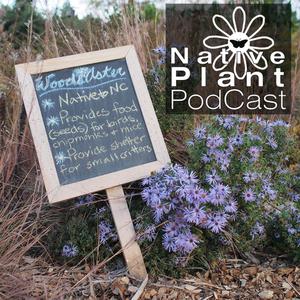 The Native Plant Podcast
The Native Plant Podcast
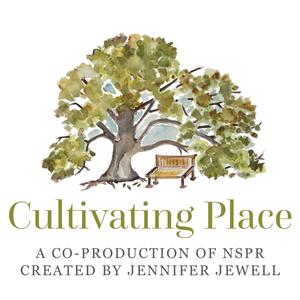 Cultivating Place
Cultivating Place
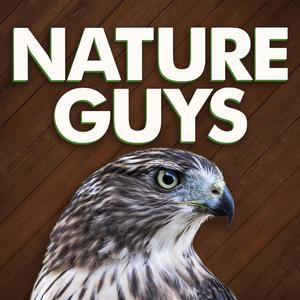 Nature Guys
Nature Guys
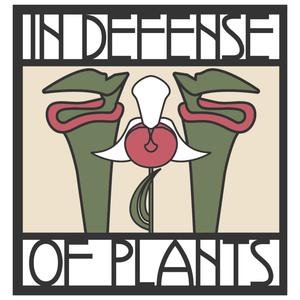 In Defense of Plants Podcast
In Defense of Plants Podcast
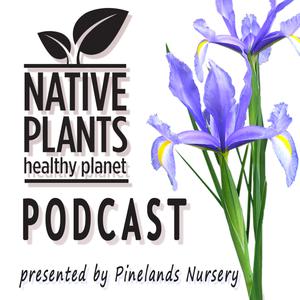 Native Plants, Healthy Planet
Native Plants, Healthy Planet
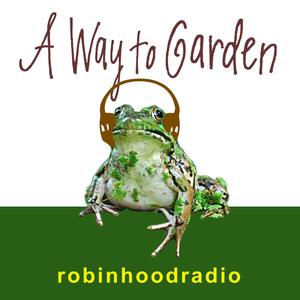 MARGARET ROACH A WAY TO GARDEN
MARGARET ROACH A WAY TO GARDEN